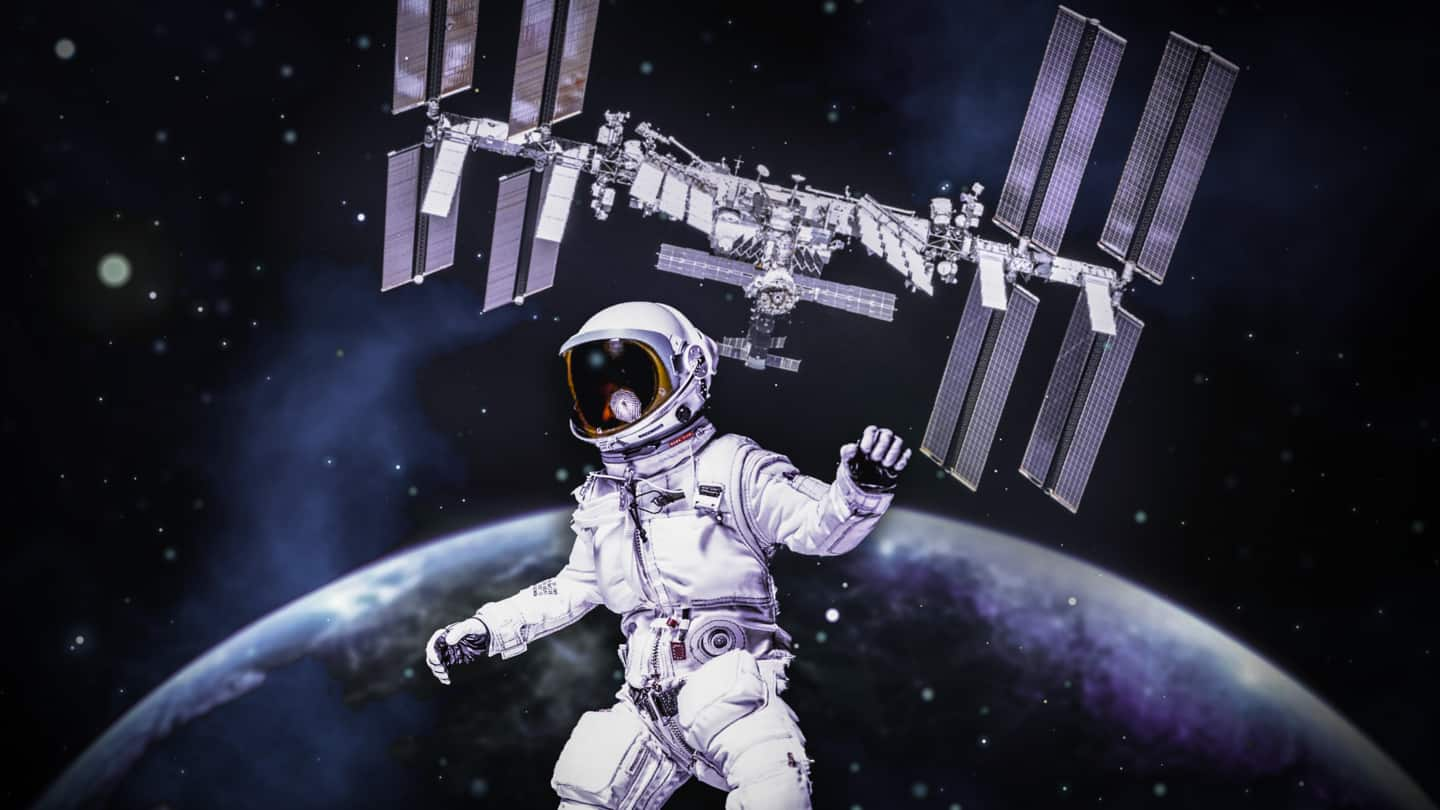
NASA inviting proposals for two private astronaut missions to ISS
What's the story
Following in the footsteps of Jared Isaacman-led civilian crewed mission and Amazon boss Jeff Bezos's plans to attain escape velocity this year, NASA has announced that it is welcoming proposals from commercial establishments for two private crewed missions to the International Space Station (ISS).
This breaks the space agency's tradition of flying astronauts from various countries to the ISS, partly thanks to SpaceX.
Mission outline
Flights scheduled for fall 2022, second half of 2023
On Friday, NASA announced that it is open to proposals from commercial companies for two private spaceflights to the ISS. The flights will be scheduled for fall 2022 and the later half of 2023.
NASA explained that such missions involve a commercial spacecraft transporting private astronauts to the ISS where they "conduct activities" aboard the space station or a structure attached to it.
Four-man crew
Axiom Space already awarded contract for first private astronaut mission
The space agency has already signed an agreement for the first private astronaut mission with Axiom Space that will take place no earlier than January next year.
The eight-day mission's passengers include Canadian investor Mark Pathy, another investor Larry Connor, former Israeli pilot Eytan Stibbe, and former NASA astronaut and Axiom Space VP Michael López-Alegría who has flown to space four times before.
Due date
Dates for new missions depend on spacecraft traffic to ISS
The recently-released plans for a second and third civilian mission to the ISS revealed that the missions could last up to 14 days. NASA said that exact dates for the missions depend on spacecraft traffic to the ISS and in-orbit activity planning, among other constraints.
Proposals for these crewed civilian missions are due by July 9.
New era
SpaceX has pioneered a new era in spacecraft, rocket reusability
Speaking of SpaceX, the Elon Musk-led company has pioneered a way to reuse rockets efficiently for both manned spaceflight and injecting payload satellites into low-Earth orbit (LEO).
In fact, the company's Crew Dragon spacecraft developed under NASA's Commercial Crew Program has ushered in a new era of spacecraft reusability.
Interestingly, the Axiom Space mission will also be using a Crew Dragon capsule.